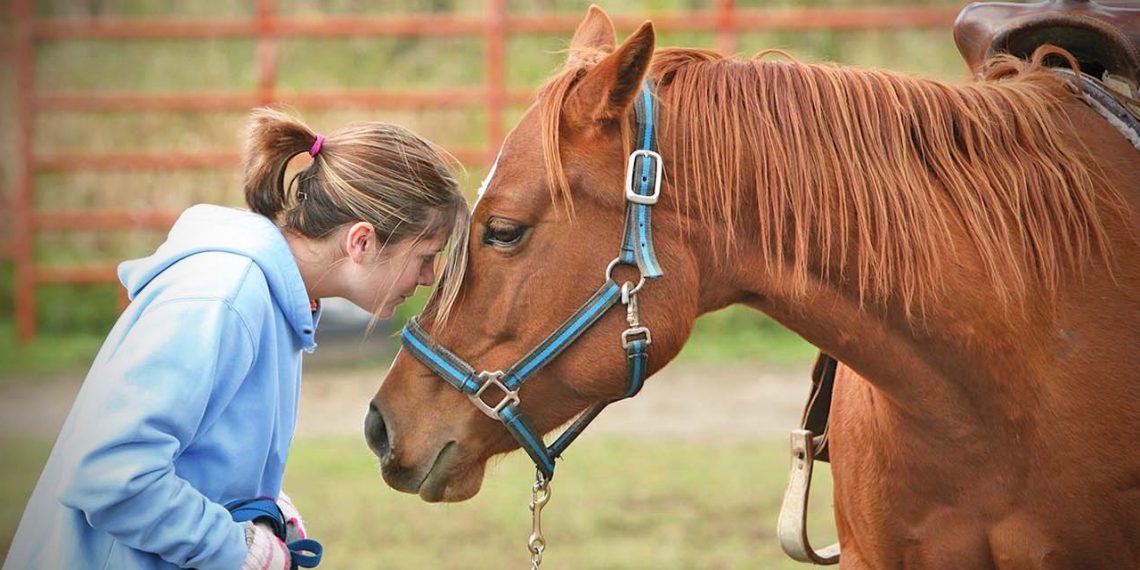Equine therapy, also known as equine-assisted therapy (EAT), is an innovative therapeutic practice that involves horses as facilitators for emotional and psychological healing. This approach has gained traction across various therapeutic disciplines, merging equine interaction with mental health interventions. Clients engage with horses in controlled environments, often under the guidance of trained professionals, leading to numerous advantages for a diverse demographic. In this exposition, we will explore the myriad facets of equine therapy, delineating its types, methodologies, and the comprehensive benefits it offers.
Equine Therapy: An Overview of Methodologies
Equine therapy encapsulates various methodologies tailored to meet the needs of individual clients. The modalities range from experiential learning to straightforward recreational activities with horses. Each serves distinct therapeutic objectives while fostering profound connections between humans and horses. Understanding the specific methodologies illuminates the breadth of equine therapy’s application.
Experiential Learning and Therapeutic Horsemanship
Experiential learning forms a cornerstone of equine therapy. Participants gain insights about their emotions and behaviors through direct engagement with horses. Therapeutic horsemanship combines traditional riding skills with psychological counseling. Instructors guide clients in riding and caring for horses, facilitating confidence-building and emotional regulation. By confronting fears, individuals often experience catharsis through the bond formed with these intelligent creatures.
Ground Work and Relationship Building
Groundwork focuses on non-riding interactions, emphasizing connection and communication. Participants learn to lead horses, recognizing body language and developing empathy. This approach nurtures relationship-building skills, essential in both personal and professional settings. Clients often report enhanced self-awareness and social skills following groundwork sessions, as the nuances of equine behavior mirror human relational dynamics.
Therapeutic Riding Programs
Therapeutic riding is perhaps the most recognized form of equine-assisted therapy. These programs utilize structured riding lessons to promote physical, emotional, and cognitive growth. Participants engage in activities that enhance motor skills, balance, and coordination. By utilizing horseback riding as a rehabilitative tool, clients often find improved physical capabilities alongside emotional and psychological benefits.
The Client Spectrum: Who Benefits from Equine Therapy?
Equine therapy has transcended traditional boundaries, serving a wide array of clientele. From children facing developmental challenges to adults grappling with trauma, the therapeutic potential is robust. The versatility of equine therapy lies in its adaptability to address disparate conditions.
Children with Autism Spectrum Disorder (ASD)
Numerous studies substantiate the efficacy of equine-assisted therapy in aiding children with Autism Spectrum Disorder. The interaction with horses can facilitate communication and socialization skills. Moreover, horses’ sensitive nature fosters an environment where children feel safe to express themselves. This interaction often results in heightened self-esteem and diminished anxiety.
Veterans and Individuals Coping with PTSD
For veterans navigating the complexities of post-traumatic stress disorder (PTSD), equine therapy presents a unique avenue for healing. The presence of horses has shown to alleviate symptoms related to trauma, providing a non-threatening platform for individuals to process their experiences. Programs specifically designed for veterans focus on the bond formed with horses, promoting empathy, trust, and emotional regulation.
Individuals Struggling with Addiction
Emerging research indicates that equine therapy plays a pivotal role in addiction recovery. The nonjudgmental nature of horses often encourages clients to confront their struggles directly. Engaging with horses cultivates mindfulness and emotional resilience, essential components in overcoming addiction. The therapeutic relationship established during equine therapy sessions serves as a powerful tool in helping individuals reclaim their lives.
Benefits of Equine Therapy
The myriad benefits of equine therapy extend beyond immediate emotional relief. Participants frequently report a range of both psychological and physiological improvements, reinforcing the value of this holistic approach.
Emotional and Psychological Gains
Engagement in equine therapy fosters emotional growth, as individuals learn to navigate their feelings through interactions with horses. Many participants discover pathways to expressing emotions previously stifled by societal norms. This release often contributes to decreased anxiety and enhanced emotional regulation. Additionally, participants tend to develop improved interpersonal skills, which can facilitate healthier relationships outside the therapeutic setting.
Physical Benefits and Rehabilitation
From a physiological standpoint, equine therapy can enhance motor skills and overall physical health. Activities such as grooming and riding improve strength, balance, and coordination. For individuals with physical disabilities, therapeutic riding offers significant rehabilitative benefits, promoting mobility and independence. The rhythmic movements associated with horseback riding can also aid in alleviating various somatic symptoms.
Building Social Connections
Equine therapy sessions often foster a sense of community among participants. The shared experience of working with horses can diminish feelings of isolation, allowing individuals to forge meaningful connections. As rapport develops, group therapies involving equine interactions can facilitate deeper discussions about shared struggles and experiences, nurturing a supportive environment.
Challenges and Considerations in Equine Therapy
Conclusion: The Transformative Power of Equine Therapy
Equine therapy has emerged as a profound method for integrating therapeutic practices with the unique therapeutic potential of horses. The dynamic interactions facilitate transformation, not only for individuals dealing with various psychological challenges but also for those seeking personal growth and development. As awareness continues to spread regarding the benefits of this innovative therapeutic approach, equine therapy stands poised to make a significant impact in the realms of mental health and holistic healing.
